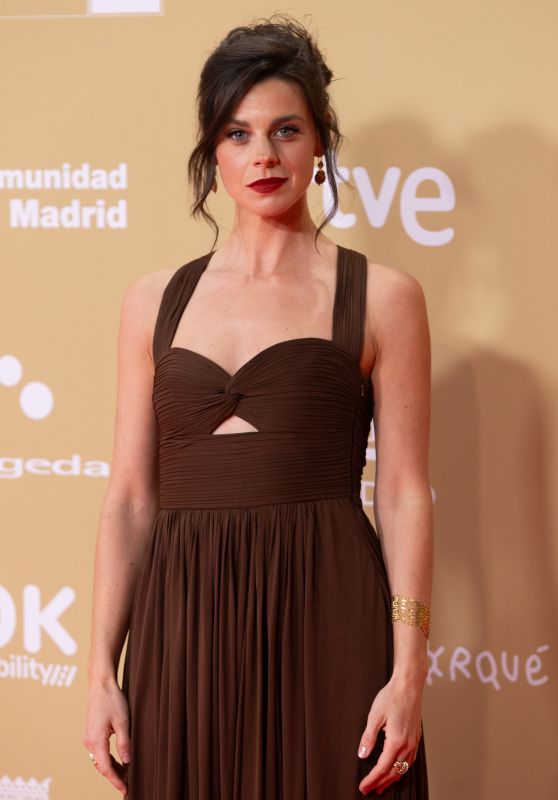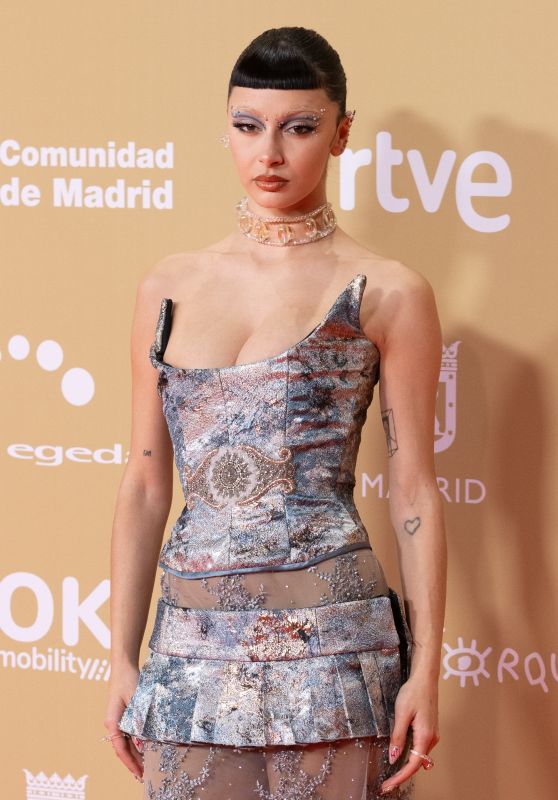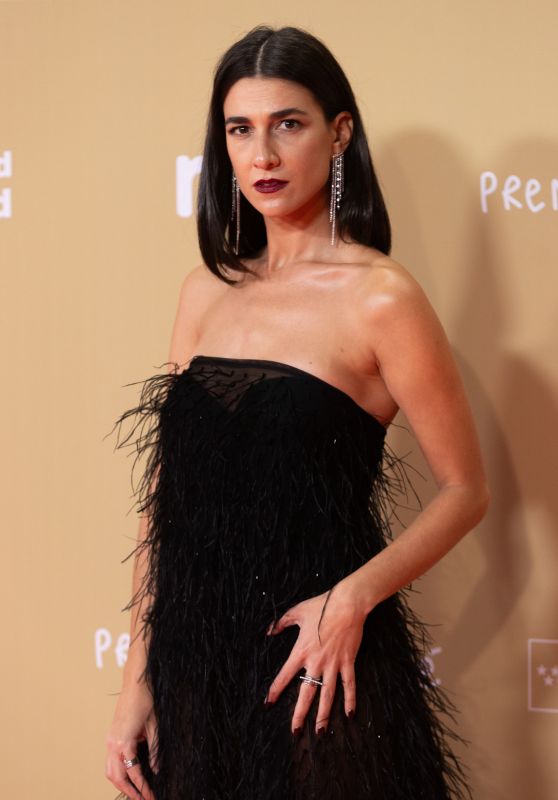[The following story includes spoilers for Shrinking season two.]
Luke Tennie‘s Sean had arguably one of the most defined growth storylines in season two of Shrinking.
The character began the season by avoiding a friend from the military, not speaking to his family and trying to do or say anything to make Jason Segel’s Jimmy happy. By the end of it, he had taken his friend, Jorge, under his wing, made amends with his father and switched Harrison Ford’s Paul as his therapist.
Along the way, he even began a relationship with Paul’s new neurologist, Dr. Sykes (Amy Rosoff). While that seemingly wasn’t in the script, Tennie explains that his banter and improv with Rosoff and Ford led showrunner Bill Lawrence, who co-created the show alongside Segel and Brett Goldstein, to write the relationship into the script.
“As we were doing the banter thing, we were improving and kind of finding stuff, and then Harrison was building other parts of the scene so he could disapprove,” he tells The Hollywood Reporter of his first day on set with Rosoff. “It was so much fun.”
He recalls that Lawrence walked on set while they were playing around, and he liked their dynamic. So, he asked them what they thought about bringing it back somehow for a “fun little reveal.” When the Nickel Boys actor got the script a few weeks later, the relationship had been written into it.
“What Bill does is he pays attention to what happens when his actors get the words. So that came just right in the moment,” he says. “Bill was like, ‘Nah, this is the direction I want to take Sean. He’s healing now, and the way we can see this healing is in him committing to exploring romance again, which we never saw in season one.’ So now we get a chance to see what Sean looks like as somebody who’s feeling somebody.”
Below, Tennie opens up about his hopes for Sean in the already renewed season three, working alongside Ford more this season, why he “never would have thought” of Goldstein as Louis and more.

Talk to me about Sean’s journey this season. What was it like playing out this big arc for him over the last 12 episodes?
I mean, as an actor, when you get scripts like this, you see that you get to be a part of an outstanding show with a crazy cast, with a crazy list of producers, awesome crew, you’re just happy to be a part of it. And when you get words to say like this, the gratitude just really washes over. For me, it’s been an honor playing Sean. I can’t wait to do it more, but this season has been so fulfilling, and I’m so proud that Sean gets to be this example for people to show what it looks like when you commit towards making a change in your life, when you commit towards trying to recover and heal from traumas, trying to be a better person for the people that you love. It’s just such an honor to portray a character like that on such an awesome show with such an awesome team.
Sean grew so much over the course of pretty much one season. Last season, he was still really struggling, and by the end of this one, he’s doing super well. What was it like portraying that?
It’s challenging to be such a fan of this person that you’re playing, and then to watch it kind of dawn on them that they’ve been moving in the wrong direction. This poor guy was so certain that he had kind of been fixed. And then it becomes made known, not just to him, but to Jimmy that out of the two patients, Sean and Grace [Heidi Gardner], the one who really had issues is Sean because he’s removed himself from all the people in his life. The goal behind therapy isn’t to remove all the problems from your life. It’s to give you the tools to handle the problems in your life, and Sean had been earning each and every one of these tools and had not ever used them to solve any of his problems. So solving those problems is the main issue in season two, and he doesn’t do it successfully right off the bat. It’s going to take a while. So for me, it’s exciting, but also watching this character hurts. I’m a fan of his progress and to see him regress hurts, but we all know it’s reflective of reality.
I wanted to ask you about the fight, or non-fight, that Sean has with the construction workers outside of the bar where he chooses not to fight back. Talk to me about that. Why do you think he needed to backslide one last time? Why did he want to get beat up?
I think it’s Sean’s extreme version of self-harm. The thing about fighting overseas and being in a situation where it’s life and death all the time is it’s hard to see smaller issues as something that’s important, just because the size may look small. This is something I love about the show, too. When you look at Liz’s (Christa Miller) character and her arc, she keeps being upset at herself for seeing issues because she knows there’s people around her with, quote-unquote, bigger issues. She’s trying to minimize her own issues because, take someone like Sean, for example, who has PTSD. Comparatively, she feels like she shouldn’t have these giant feelings and emotions, these negative perspectives on her life because she doesn’t have the right to. Sean is still doing that in his own life. He’s not overseas anymore. “So why am I so angry? Why am I so violent?” So he’s forced with this whole conundrum, and he has a meltdown where he wants to feel pain and the completion of his arc of trying to find violence in season one, I think seeing him sacrifice himself to feel this pain reveals to me that he never really wanted to win those fights. He was always looking just to get hurt, and he figured out how to do it. And I think that marks growth. Although it’s terrifying, I don’t think Sean will need anything like that anymore in his future.

Over the last two seasons, we’ve also seen Sean grow closer to the show’s cast, and their dynamic onscreen has been really great. How did you all develop that?
To be honest, the words. The words are great, and it helps that we like each other. And here’s what I’m starting to learn. In moments where you have a performer … take my scene in episode four [where I scream at Jimmy], for example, that was hard work. Sean’s going through something. I have to kind of attack this person who I greatly admire, who’s been fundamental in my understanding of comedy for the past 15-20 years, Jason Segel, and now I have to yell at him, get in his face and all this stuff. And then you think that would make it challenging. But the truth is, when you enjoy these people and you get to work with them and you trust them, then they sort of help you come further out of this place. I was scared in that moment. I didn’t want to perpetuate this angry Black man stereotype. But what Bill had written, what Brett and Jason had written, was not fulfilling that stereotype, because this is about a young man who wants to conquer his anger, and that is what a lot of African American people need to see in this day and age. And I’m grateful that Sean gets to portray it. So, I think the dynamic just comes from us liking each other and just really good words on the page.
The scripts are insane. Every single episode, almost every single line that comes out of everyone’s mouth is so funny but then also so powerful. I’m just like, “How did they all do this?” This season, we get a better look at Sean’s family life. What was it like exploring that side of him?
Ah, it’s incredible. It’s great working with all the wonderful performers who play Sean’s family. I really enjoy working with Logan [Carter], Kenajuan [Bentley], with Mimi [Fletcher]. That’s my brother, my dad and my mom. They’re just so warm and so fun. And every chance I get to work with them is great. And then we have a new introduction, too, [of Jorge], played by Trey Santiago-Hudson, who’s become a close friend of mine. I just really enjoy what it’s like to see these aspects of Sean’s life. But more than that, it’s always fun playing with actors who you trust. So, again, shout out to [casting directors] Brett [Benner] and Debby [Romano] for finding these wonderful performers who also are nice people. It’s a dice roll. I don’t know how you do it. Sometimes people are brilliant, but they ain’t chill. They ain’t cool, but that’s not been my experience on Shrinking. Brett and Debby somehow figured out how to cast good-hearted individuals as well as good actors.
Also part of Sean’s growth saw him going from being scared to talking to Jorge, his friend from overseas, to sort of serving as a mentor for him. How was it bringing that story to life?
Oh, that’s so inspiring to me, because that’s kind of what my life looks like. I have very, very close friends, and we each are better at certain things in our lives than others. Not two of us are really that excellent at the same thing. When I think about my close friends, somebody’s got something down, and when I look at this friendship between Sean and Jorge, it reminds me a lot of my close friends, and how there might be something that the other has that we can seek to gain from them just through osmosis, just from being around them and watching them interact with the world. And I love it because it’s so chill. These two guys, they really seem to have this sort of care for each other. And it’s also great to see what it would look like for Sean to really dig into his past and deal with it in a healthy way. That’s what that relationship looks like. It looks like dealing with the past responsibly.
We also see Sean switch from Jimmy as his main therapist to Paul, with Jimmy helping out a little bit. Why do you think that was an important step for him to take in his path?
This is one of those things that I just I gotta give praise to the writers again for because I don’t think it was just about Sean needing two people with two different sets of expertise. It was really about Paul and Jimmy learning that they need to work together despite their differences. Jimmy is always seeking Paul’s approval, but for Paul to be excellent, Jimmy needs to criticize Paul for what he’s lacking, and Jimmy needs to get his stuff together and actually use a lot of his skills in addition to his new avant-garde approach to therapy. But Paul needs to accept what works from that avant-garde therapy and also still be the foundation. So everybody needs each other in these cool and interesting ways. And the writers are subconsciously kind of encouraging this sort of invisible theme, which is teamwork. So, Sean’s the result of teamwork, and he’s also requiring teamwork from these people who really find it hard to work together. It’s a great show. It’s a masterclass in writing. I’ve been writing for a bit, so when I’m looking at it, I’m like, “Yeah, yeah. Bill, Brett, Jason, they could hold a TED talk or a masterclass.” Everybody will be learning and loving how to write comedy better.

That switch in Sean’s life gave you more scenes with Harrison Ford. How was that experience?
Awesome. Harrison’s great. That curmudgeon thing that he be putting on, it’s fake. You know what I’m saying? Like all he wants to do is make people giggle. That’s his thing, bro. He trying to make people giggle. And when I get the opportunity to work with him, he’s still Indiana Jones. He’s still freaking Han Solo. He’s still the president, like “Get off my plane.” He’s all of that in one, but the thing about him is that energy, that fierceness, that intensity, is only directed at being excellent. It’s not directed or misdirected at anyone’s expense. This man cares so deeply about getting the words right, especially because he’s playing the person who’s kind of orating this real therapy. He wants to nail it, and we all get to be a part of watching him nail it, and now playing his client, I get to be a part of demonstrating what those tools look like when put into practice. So I’m checking all the boxes on this one.
Another part of Sean’s storyline this season was his food truck business, which seems to be flourishing. Did you take any sort of inspiration from your real life for these storylines or anything else?
Again, more credit to the writers. Shout out to Neil [Goldman], Brett, Jason, Ashley [Nicole Black]. We got Bill. Just so many great writers. When I first signed on to the show, they asked me the kind of stuff I was into, and I think they just paid attention to which one I talked the longest about. And it was cooking. I love cooking. So it was because they asked me about what I enjoyed — cooking — that Sean now is somebody who cooks professionally. So they just stole straight from my life, and now I get to do this thing in the job that I love, that’s also this thing that I love. Oh, I can’t. This is great. It’s a great life.
The next step that Sean takes in his life is to get into a new relationship with Paul’s doctor. Talk to me about that.
Oh, man. It seemed like that arc happened on a whim. I’m not sure if Bill had any plans beforehand, but I got to meet this wonderful performer, Amy [Rosoff, who plays Dr. Sykes], and I met her on the day where we did the scene where Sean first meets her, where he goes to the doctor’s office with Paul. And she was incredible and super funny and warm, and as we were doing the banter thing, we were improving and kind of finding stuff, and then Harrison was building other parts of the scene so he could disapprove. It was so much fun. And what I love so much about that is Bill walked on the set. He was like, “Huh, this is cool. Hey, what do you guys think if we bring this back? You know, a fun little reveal.” I look at Amy. I look at Harrison. Harrison looks at Amy. Harrison looks at me. We all smile like we know it’s gonna be something cool, and then I get the scripts a couple weeks later. Boom, and now it’s real. So what Bill does is he pays attention to what happens when his actors get the words. So that came just right in the moment, and Bill was like, “Nah, this is the direction I want to take Sean. He’s healing now, and the way we can see this healing is in him committing to exploring romance again, which we never saw in season one.” So now we get a chance to see what Sean looks like as somebody who’s feeling somebody.
Bill has talked a lot about how this season was about forgiveness, and how every sort of character has their own sort of path to forgiveness. Talk to me about Sean’s.
I think Bill just has such a specific vision. He really cuts the fat off of all of his work, and I think that theme running so rampantly and so significantly throughout every character’s arc results in this sort of conviction in the audience where they think, “Oh, man, it sounds so cliche, but it really is true. Forgiveness is not for the other person, it’s for me.” So what he’s done is paint this picture that demonstrates this is when people can move forward, when they accept, forgive, then the doors open.
Before that, when you just try to keep breaking these doors down, you come out hurt like, what if you do break the door down, but you also break your arm? You damage your ankle trying to kick through this door. What if there is no door until you learn to forgive? That’s this whole season, and from Sean’s perspective, it’s very clear. You got that brief moment with Liz, and then it’s his father. In certain cases, it might even be with his therapists, like trying to figure out why he feels so let down by them. So a lot of it is just accepting the responsibility and learning that we need to forgive others before we move forward. It’s for us.

I’m glad you mentioned the Liz scene. That was hard to watch. You don’t see Sean and Liz fight like that at any other point. How is it playing that out with Christa Miller?
Well, I trust Christa a great deal, not only because she’s excellent, but because I think we have great chemistry in terms of understanding what purpose our characters serve in the show. So whenever Liz and Sean are around each other, Liz is going to Liz at the highest degree. She’s really going to randomly trauma dump and be like, “Yo, I got a little sister. She’s French. It’s fine.” She randomly wants to just talk about how much she hates this person who uses these certain words as a food blogger. She’s gonna Liz. What that does is it shows you that these people are very comfortable around each other to be their most authentic selves. But, in that moment, for Sean, Liz reached behind this veil that Sean had, which was, “We get to be ourselves because I’m not tasked with being around my family.” What she did was [bring] his family in front of his face. So, instead of seeing Liz, he sees all these problems between her and him, and then he blows up because of these problems, not really because of Liz. But what I do admire is how quickly he was able to apologize and recalibrate. That shows the emotional growth too. And although we don’t spend too much on that moment, it’s really funny. That moment where he goes to therapy with Liz is really significant, and you can see how much she cares for Sean by showing up, because, you know darn well, she wouldn’t have been in there for any other person.
In the same vein of forgiveness, Sean had his own things, and then, of course, Jimmy and Alice had everything with Louis. What did you think when you first saw that he would be introduced in the script?
I couldn’t have guessed that it would be Brett, that’s for sure. But the main thing I thought was it makes so much sense why this character would be brought to the forefront in such a unique way because he did do something wrong, but it was not intentionally wrong. He’s also remorseful. He already regrets it. What would make it easy is if Jimmy had to deal with this individual who wasn’t remorseful, who wasn’t regretful, but he has to deal with this person who’s already sorry. That’s a challenge and trying to figure out, “If this person’s already sorry, it feels like it’s rushing my forgiveness. I’m not ready to do that yet.” That whole conversation, just to me, enhances Shrinking‘s capabilities to the max. It really kind of shows what it’s like to be in the real world. Because in the real world, a lot of people know when they’ve done wrong, and you have to deal with what it’s like when they’ve finished accepting their wrongdoing before you have. What a challenge.
Sean helps Alice, played by Lukita Maxwell, see that she may want a certain thing from Jimmy, but Jimmy needs to do that in his own time. What was it like being that sounding board for her and sort of telling her, like, “Look, give him a break”?
What was so cool about that to me is I think Sean cares a great deal about Alice, not just because she’s a cool person. She cares a lot about people. I think he cares a lot about her because he knows that Alice is the daughter to the man who kind of saved him. So he knows how important Alice is to Jimmy and wants to make sure that he can be everything he needs for her. And, in that moment, he knows she needs a sort of tough, talking-to, which is like, “Yo, you know you mess up. Like, look at what you did this season,” kind of thing. “You over here asking for forgiveness, but you still struggling to give it to this man who’s saving all these other people.”
We see that sort of thing reflected in Paul’s relationship with his daughter, played by the wonderfully fantastic Lily Rabe. And I think the reason why we have those arcs there is because it’s nuanced. Parents shouldn’t need anything from their children — at least in my opinion. You shouldn’t need anything. You brought them here, nothing from them that should be a requirement for you, but Jimmy needs people’s approval. He needs to be wanted by Alice, and that damages their relationship. Even though she lost a mom, he did lose a wife. So I think for her to kind of have to deal with that context, now that she’s 18, she’s got to be an adult about it. Sean is challenging and helping her realize that.
You mentioned that you weren’t imagining Louis to be played by Brett. Why do you think he ultimately was the right actor for the role?
What’s so crazy is the retroactive “Of cooooourse! I never would have thought.” I remember reading this character’s words and really seeing the kind of behavior that this character had, the kind of sincerity. And, before I met Brett, I wouldn’t have thought that this guy would have been perfect for this part. But a lot of people don’t know that Brett’s personality is far closer to Louis than it is to Roy Kent. Roy with this rough, gruff, tumble exterior. There is a lot to Brett that’s like that. He’s freaking built like Hercules. That’s a thing of his, but he’s such a sweet, kind human being, and we see that with Louis, especially in the flashbacks. I’m excited for the viewers to see that context, but I’m so grateful that he said yes to that part because no one else could have brought the levity as well as the depth that he did.

Where do you hope Sean goes in the already renewed season three?
In my opinion, I hope we go to the past for Sean. I want to see what happened in Afghanistan. I think we’ve seen so much of Sean’s growth, and we haven’t seen where he’s come from. But the other thing is I want to see him in the future with Jorge. I want to see what that relationship looks like. I want to see him get closer with his family. I want to see what it looks like when he takes his tools back home instead of just running away. I want to see him move out [of Jimmy’s house]. But, big time, I want to see the past. I want to go to Afghanistan, and I want to see what happened.
What can you tease about the next season?
To be honest, nothing. I know as much as anyone who has seen the end of episode 12. The only thing that I knew about seven minutes before everybody else knew was that we were having a season three. That’s it. But the previous question that you asked, what I’m hoping for, I really hope that we get to see Sean more with Jorge, more with his family, and I really hope we get to see where Sean came from. I want to see what broke him.
Shrinking season two is now streaming on Apple TV+.




















 English (US) ·
English (US) ·